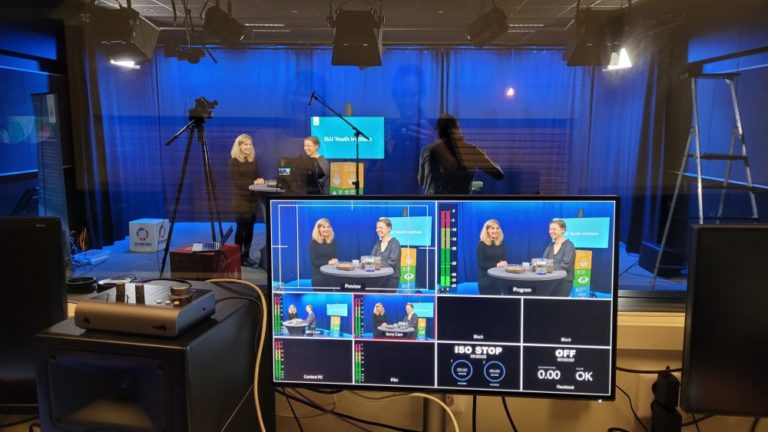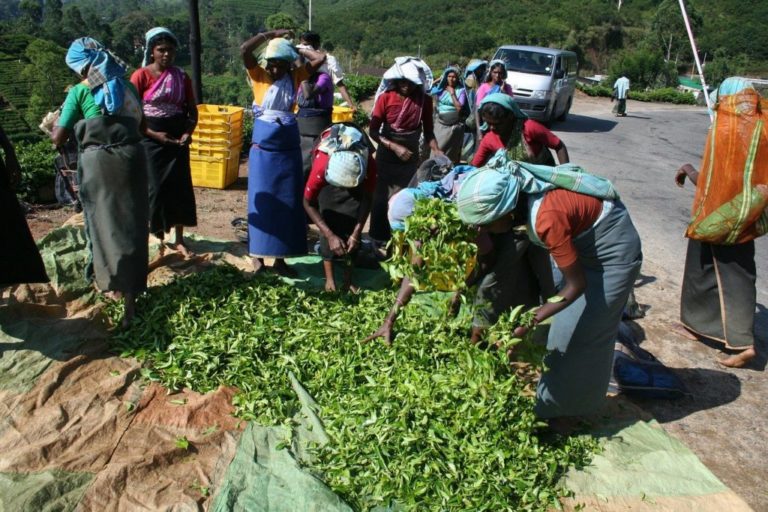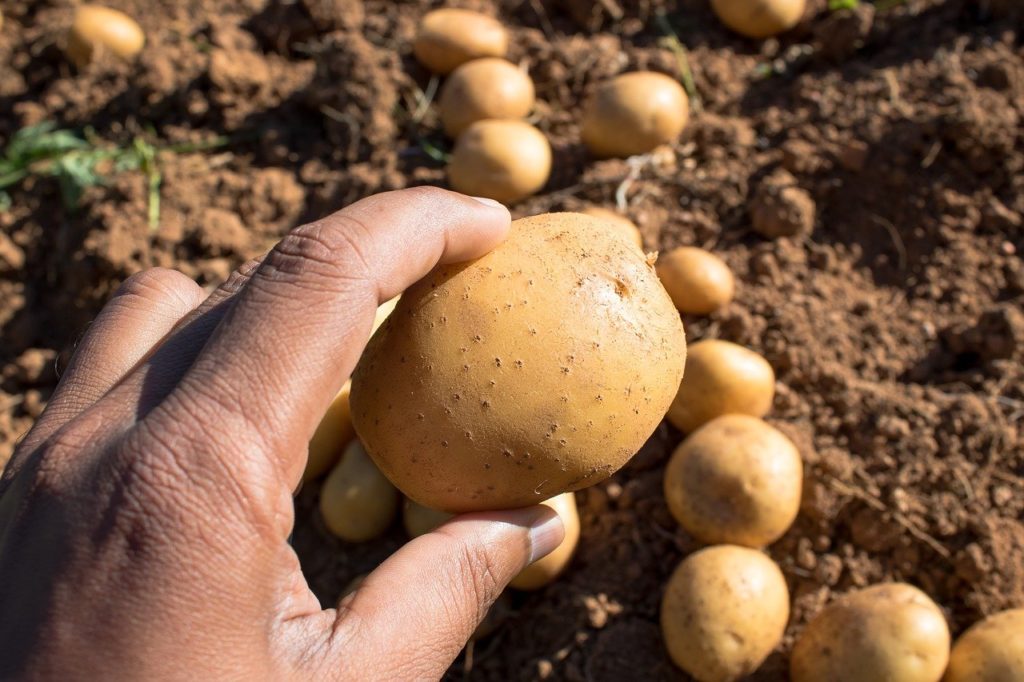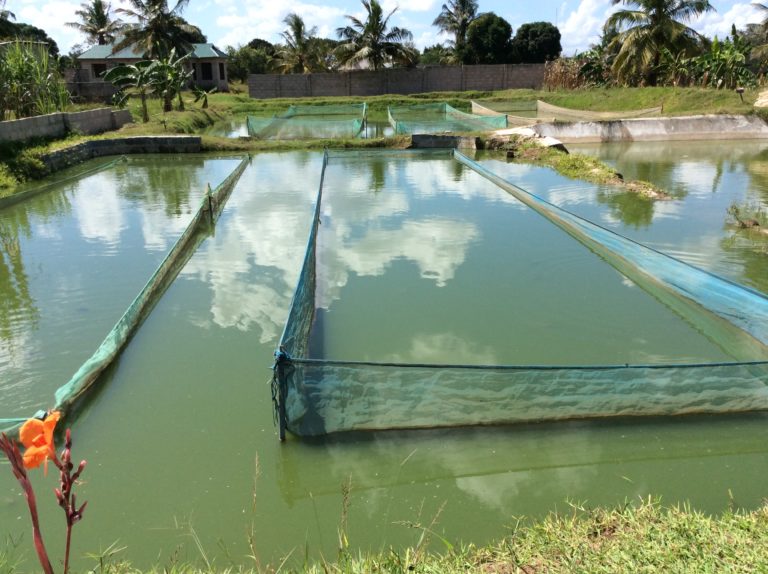The article was originally published on the Agroecology TPP website
 Event proceedings at CIFOR-ICRAF Headquarters in Nairobi, Kenya
Event proceedings at CIFOR-ICRAF Headquarters in Nairobi, Kenya
On 30 May, the Transformative Partnership Platform on Agroecology (Agroecology TPP), together with co-hosts CIFOR-ICRAF, SEI, SIANI, SLU and UNEP, hosted the Stockholm+50 associated event on ‘The scope for agroecology to support integrated implementation of the three Rio Conventions through food system transformation.’
As a hybrid event – with panelists and the audience present in Stockholm, Sweden (SEI Headquarters), Nairobi, Kenya (ICRAF Headquarters), and online – it set out to explore the role of agroecology in strengthening the implementation of the three Rio Conventions and achieving the Sustainable Development Goals (SDGs), all the while putting smallholder farmers and indigenous communities at the center.
The diverse group of panelists included names such as Pat Mooney of the International Panel of Experts on Sustainable Food Systems (IPES-Food) and the Co-founder and Executive Director at ETC Group; Laura Scandurra, President at the Centro Agronómico Tropical de Investigación y Enseñanza (CATIE) Board of Directors; Veronica Ndetu, Head of the Climate Change Unit in the Ministry of Agriculture in Kenya; Elisabeth Simelton, Senior Policy Specialist – Agriculture at the Swedish International Development Cooperation Agency (Sida); and Marcos Lana, Associate Professor at the Swedish University of Agricultural Sciences – with critical reflections from farmer representatives including Monica Yator, Founder of the Indigenous Women and Girls Initiative, and Irish Baguilat of the Asian Farmers Association.
The event was moderated by Fergus Sinclair, who is the Co-convenor of the Agroecology TPP, one of the coordinators of the Agroecology Coalition, and Chief Scientist at CIFOR-ICRAF. He gave an overview of the existing agroecology-related work on the ground as well as present-day partnerships and commitments. For instance, the Agroecology TPP, launched at the 46th Plenary of the Committee on World Food Security (CFS 46) in 2021, is a partnership that brings multiple actors together, interested in addressing knowledge and implementation gaps constraining agroecological transitions. The Agroecology Coalition that emerged from the UN Food Systems Summit (UNFSS) in September of last year is a coalition of the willing focused on action, with 33 countries, including the African and European Unions, and 63 organizations already on board. These include key UN bodies, civil society, research and regional farmers organizations, all committed to making agroecological transitions a reality.
Pat Mooney talked about a recently issued special report from IPES-Food – ‘Another perfect storm’ – which discusses the current global food crisis – a third one in 15 years – and what can be done to prevent the next one. He referred to ‘black swans’, talking about apparently unanticipated global challenges of which there are many, happening at the same time, and feeding off one another – such as broken food systems, degradation of land and water resources, climate change and biodiversity loss. However, when writing the report, the IPES-Food team realized these events were not such a bolt from the blue but could be expected, and so referred to them as ‘grey swans’. What does this mean in practice? He explained:
“These ‘grey swans’ – or challenging events – are not simply a one-off occurrence, they will happen again. The response to such crises starts with knowing that they are out there. On the food side, for example, we should be thinking about ways in which we can create a system that takes care of global food needs when normal structures fail … and ways of overcoming the existing legal obstacles when faced with, say, the food crisis. One possibility could be a treaty for food emergencies.”
The event strongly underlined the fact that these global challenges we face are connected with one another and therefore, as Elisabeth Simelton put it, “they should not be treated in isolation.” Instead, we should try to tackle them in a holistic – or systemic – manner.
Another important argument made concerned the critical role of smallholder farmers and indigenous communities in supplying food to the world. Both Marcos Lana and Monica Yator stressed that these farmers require support. As Monica outlined:
“Today, fertilizers are incredibly expensive. Indigenous and other farming communities simply cannot afford them. We need action, which means supporting these farmer groups. We need to listen to them. They should be heard.”
There were numerous interactions with the audience over the course of the event, with live questions being addressed by the panelists. A five-step poll was also shared, to get insights into what the audience deems important for the work on agroecology in relation to the implementation of the three UN Rio Conventions. As such, those in attendance – both physically and online – were asked to rate the importance of different proposed actions on a scale from 1 to 10, where 1 is not relevant and 10 is of vital importance. Reducing power asymmetry amongst actors in food systems was considered most important (77% ranking it of vital importance, with a mean score of 9.3).





Following the discussion held between the panelists, the outcome of an online poll and numerous comments and remarks from the audience, one important – and constant – theme emerged: moving from talking to action. This is exactly the remit of the Agroecology Coalition, which, building on the scientific knowledge of the Agroecology TPP and other organizations, will take the lead in making sure that the commitments made are being turned into real action on the ground.
Watch the recording here











